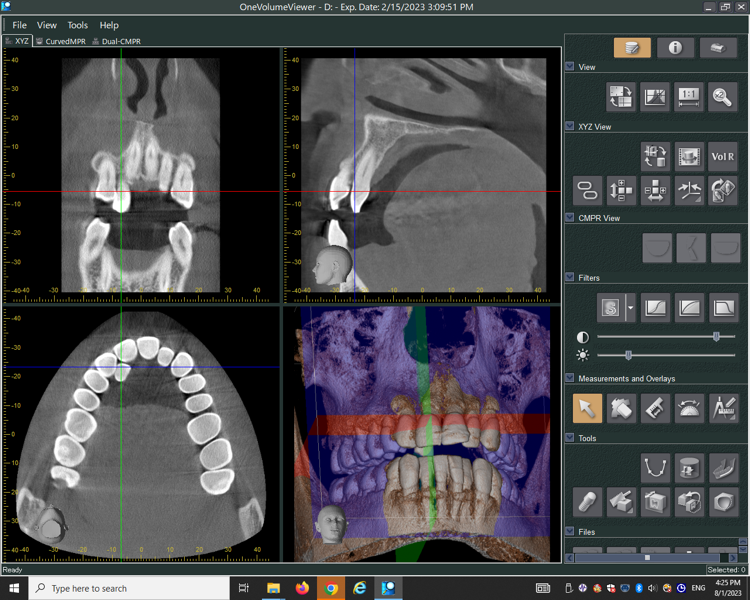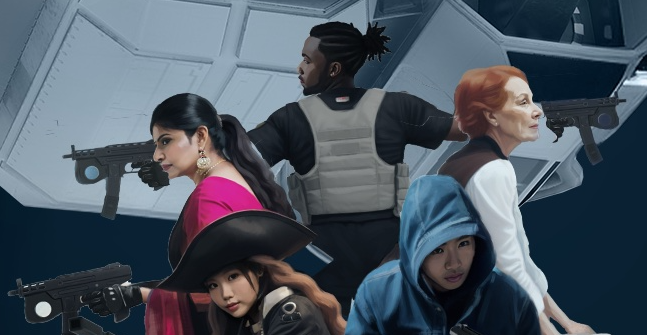Dental procedure is done and went well. No pain, only pressure and numbness. No driving for the rest of the day, no strenuous activity for 3 days. I’m bleary but okay.
Blog
Dentists Hate This One Weird Tooth
As you may or may not know, I have This One Weird Tooth.

It is, in fact, the oldest of my teeth — my first adult tooth. When it came in, the baby tooth would not come out, no matter how I wiggled it. My parents shrugged and advised patience. The adult tooth did not heed this advice; it came in behind the baby tooth that refused to vacate. The recalcitrant baby tooth was eventually pulled, but the damage had been done.
To prevent a recurrence of this undesirable situation, I had to return to the dentist for each and every loose baby tooth, so that it could be evicted with pliers. This series of unfortunate and painful events led me to a strong dislike of dentists, which meant that I didn’t see the dentist for seven years after graduating from college. Eventually my girlfriend-at-the-time convinced me to mend my ways, and I went back. It took three painful visits to scrape my teeth clean, after which I became a reformed non-dentist-goer. Ever since then I have taken meticulous care of my teeth, brushing and flossing at least once a day and visiting the dentist three times a year. My teeth and gums are in excellent shape.
Except for This One Weird Tooth. My dentists and hygienists have been impressed, indeed amazed, at how well I have been able to take care of This One Weird Tooth and its associate gums, despite the fact that it’s too tight for a brush. I have worked out some gymnastics with floss that have kept it pretty clean, and regular dentist visits have made up the difference. But just about every time my dentist would suggest that maybe I should look into doing something about it.
At my last dentist visit the suggestions ended. “I’m giving you a referral to a periodontist,” she said, and brooked no further temporization. So off to the periodontist I went, where scans were taken and an extraction-and-bone-graft was scheduled.

The procedure is tomorrow. I have drugs to take, including Ativan for anxiety, Zithromax for infection, and Advil for pain. I will be on soft foods for a week or two.
I do not want to do this.
It will be okay.
Goodbye, old friend.
The app formerly known as Twitter is poisoning your mind
I just launched the app formerly known as Twitter and I see:
- 2 posts from people I follow
- Ad
- Post from someone I follow
- 2 suggested posts
- “Who to Follow” (3)
- Ad
- Post from someone I follow
- “Creators for You” (3)
- 2 suggested posts
- 2 posts from people I follow
- Ad
- Suggested post
- Post from someone I follow
- Ad
So that’s 7 posts from people I actually follow out of 18 total (and that’s counting the three-banger “Who to Follow” and “Creators for You” as 1 each). Less than half.
Please note that the ads are marked only by a small gray “Promoted” at the bottom, and the suggested posts look exactly the same as posts from people I follow. The only way I can tell a post was suggested is to hover over the poster’s userpic and note that it presents a “Follow” button instead of “Following.” If the algorithm is selecting posts that look similar to what your friends post (e.g. something about the WGA strike), you might not immediately notice that a post was put into your feed by the algorithm rather than being posted or retweeted by your actual friends.
This means that information Twitter has selected for you, for reasons of its own, hits your brain with the same perceptual filters you apply to posts from your friends. It might be on the same topics your friends post about, but it may not be factual and may not align with their values. Do you see how dangerous that is?
Pemmi-Con NASFIC schedule
Well, my flight from Minneapolis to Winnipeg was canceled, so I missed my first scheduled panel. But I will be there soon! In fact, I am on a plane to Winnipeg right now! So here’s my remaining schedule:
10:00 AM, Saturday 22 Jul 2023 CDT – 1 hour 15 minutes
Kaffeklatsche: David D. Levine
Delta Hotel – Fort Garry
11:30 AM, Saturday 22 Jul 2023 CDT – 1 hour 15 minutes
Editors are Sort of Human Too, You Know!
Convention Centre – York 2
4:00 PM, Saturday 22 Jul 2023 CDT – 1 hour 15 minutes
The Next Pandemic
Convention Centre – York 4
1:00 PM, Sunday 23 Jul 2023 CDT – 25 minutes
Readings: David D. Levine
Delta Hotel – St. James
My upcoming appearances!
I have a novel coming out in November! The Kuiper Belt Job is a caper story in space, a mash-up of Firefly, Leverage, and The Expanse. It’s an ensemble piece with complex character relationships and a twisty, compelling plot, but beneath the entertaining surface it raises deep questions about identity and personhood. In a world where minds can be copied, what does it mean to be “me”?
I’ve already set up a bunch of personal appearances to support the novel, with more to come. Here’s what I have so far!
- Jul 19-24, 2023: Pemmi-Con, Winnipeg, Manitoba
- Sep 22-24, 2023: Rose City Comic Con, Portland, Oregon
- Oct 26-29, 2023: World Fantasy Convention, Kansas City, Missouri
- Oct 11, 2023: Fantastic Fiction at KGB, New York, New York
- Nov 8, 2023: The Book Corner with D.C. Gomez, Live on Amazon
- Nov 9, 2023: Powell’s Books at Cedar Hills Crossing, Beaverton, Oregon
- Nov 10-12, 2023: OryCon, Portland, Oregon
- Nov 16, 2023: Deep Dish Reading Series, Chicago, Illinois
- Nov 21, 2023: University Bookstore, Seattle, Washington
- Nov 29 – Dec 4, 2023: Teslacon, Madison, Wisconsin
- Dec 8, 2023: Charm City Spec, Baltimore, Maryland
- Feb 25, 2024: SF in SF, San Francisco, California
Keep an eye on https://daviddlevine.com/about/upcoming-appearances/ for updates!
Kuiper Belt Job cover snippet
I’ve been authorized to share this snippet of the draft cover of my new novel The Kuiper Belt Job, coming November 7 from Caezik SF & Fantasy. It’s a found-family heist novel which I describe as a cross between Firefly and Leverage in the universe of The Expanse. Excited!

Conscience: a Westworld-themed LARP in Spain!
So a few days ago I learned about a Westworld-themed LARP (Live Action Role Play event) being held in Spain, at Sergio Leone’s Western studio. You can play a Guest, a Host (robot), or a corporate employee. It sounded amazing! Unfortunately, I found out about it just after signups had closed.
On a lark, I sent in an application anyway.
I got in.
It’s March 9-12, 2024.
Here’s a review of a previous run of this LARP.
2022 in review / plans for 2023
The most significant thing that happened to me in 2022 was my father’s passing in May. He had a good life and a good death, and I have no regrets about any of it. I know that my dad loved me and was very proud of me, and I was happy to be able to be there with him in his last days. But dealing with the event really shook me up and I haven’t written a word of fiction since then.
On the other hand, once I dealt with the paperwork (and there are still, seven months later, a couple of outstanding accounts to be dealt with) I found that my life had changed substantially in several very positive ways. One is that I have had a powerful reminder that life and health are finite and that we all need to spend time with the people we love, do the things that bring us joy, and take opportunities when they arise. Another is that I no longer have to devote the time and energy that my father’s care have taken — an increasing burden, though never overwhelming — in the last few years. And another is that the money in my dad’s accounts, which I had been managing with the assumption that he could live to as much as 100 with increasing medical expenses, was now no longer needed for those purposes.
So I’ve been doing a lot of traveling. Travel is my favorite thing to do with my time and money, and is what Kate and I retired to do. In the past five months I’ve been to Chicago for the Worldcon and the Papal Election Simulation, Dubrovnik and Rome, Disneyland, New Orleans for the World Fantasy Convention, Madison for Teslacon, New York for Broadway, and Ashland for the Shakespeare Festival (twice) plus several events in town and nearby. All of these were happily shared with friends and lovers. It’s been delightful.
I’ve also been making substantial donations to people and organizations that matter to me. I joke about “the David D. Levine Foundation for Theatre, Science Fiction, and Sexual Minorities, AKA The Geeks & Queers Fund,” and although there’s no actual foundation, that’s not too far off the truth. A lot of this year’s donations were one-time contributions (including the xestablishment of a scholarship in my father’s name), but with what remains I’ll be able to make a difference going forward. This giving is, to me, kind of a form of Retail Therapy but without having to deal with the things purchased. It feels good.
In 2023 I hope to keep traveling, keep spending time with the people I love, and keep contributing to people and causes that matter to me. I also hope to get back on the writing horse. I have a goal of writing something every day, which I’ll be starting on right after posting this, but I’m trying to be realistic and not doctrinaire about it — I have a calendar where I’ll be putting a star on every writing day and my metric is “I should be able to look at the calendar and not feel embarrassed.” I’m also applying a similar metric to exercise.
Another writing goal for 2023 is to support the publication of my SF novel The Kuiper Belt Job, expected to be published by Caezik SF & Fantasy in Septemer. A prequel novelette, “The Bucket Shop Job,” will be appearing in the January/February issue of F&SF, and I expect editorial comments on the novel to arrive in my mailbox any time now. And I hope to complete a draft of the “Vaudeville with Aliens” novel I’ve been working on since 2021 before the end of the year (fingers crossed).
David’s Index for 2022
Short fiction words written: 0
Notes, outline, and synopsis words written: 39,833
Blog words written: 5,878
Total words written: 76,403
New stories written: 0
Short fiction submissions sent: 1
Responses received: 3
Rejections: 1
Acceptances: 2 (pro)
Other sales: 3 (2 reprint, 1 translation)
Short stories published: 5 (1 pro, 2 reprint, 1 translation)
Novel submissions: 2
Rejections: 1
Acceptances: 1
Short story collection rejections: 1
Happy new year!
Social Media Links
Here are all the places you can find me on social media at the moment:
- Email (david@daviddlevine.com)
- Blog (daviddlevine.com/blog)
- Twitter (daviddlevine)
- Mastodon (daviddlevine@wandering.shop)
- Facebook (David D. Levine)
- Instagram (daviddlevine)
- Tumblr (david-d-levine)
- Dreamwidth (davidlevine)
- Goodreads (daviddlevine)
- Hive (daviddlevine)
- Post (daviddlevine)
- Tribel (daviddlevine)
- Cohost (daviddlevine)
- Ello (daviddlevine)
Recent Comments